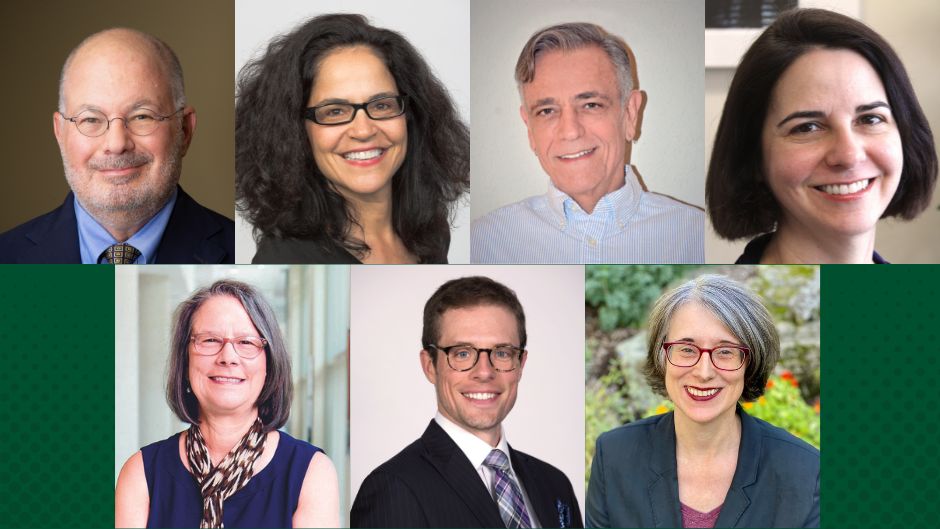Miami Law was well represented as speakers in San Diego, California, at this year's Association of American Law Schools annual meeting, themed "How Law Schools Can Make a Difference."
The meeting is the largest gathering of law faculty in the world. More than 1,000 law teachers, librarians, and law school administrators from member schools, non-member schools, and law schools of other nations attended the gathering, comprised of 250 sessions and 50 networking events.
"The annual AALS meeting is likely the leading convening of legal academics in the world. Having faculty present as experts in their fields across a range of cutting edge and recurring issues is a tribute to this faculty's deserved reputation for leadership and innovation," said Charlton Copeland, professor of law and dean of intellectual life.
"My congratulations to all those who participated and those who have assumed positions of leadership within the established sections or on committees," Copeland said.
Most meetings are devoted to programs organized and presented by AALS sections. To encourage and recognize excellent legal scholarship by new law teachers, AALS issues a call for scholarly papers by full-time faculty who have taught for five years or less. Legal scholars select for special recognition those authors whose writings have made the most substantial contribution to legal literature.
Panelists from Miami Law
David N. Yellen, dean and M. Minnette Massey Professor of Law, spoke on the panel, "Empirical Study of Legal Education and the Legal Profession," which examined how, over the next five years, law schools will face multiple developments that merit new or renewed empirical study including the NextGen Bar Exam, revisions to American Bar Association Standards 306 and 311, and measuring the external impact of experiential learning programs.
Rebecca Sharpless, professor of law and associate dean for experiential learning, sat on the panel, "AALS Arc of Career Program — So You Want to Write a Book with Impact?" The roundtable discussion explored the challenges and opportunities of writing books, focusing on books geared to both general and scholarly audiences.
Professor Donna K. Coker participated in the session "Criminal Law — Leaving Carcerality Behind: Thoughts on Intervention with Gender." The panel examined new forms of intervention for gender violence and considered how gender violence offenses are often omitted from criminal system reform efforts.
Professor Elizabeth M. Iglesias and Madeleine M. Plasencia, visiting professor, spoke on the panel, "Comparative Law — Comparative Law Works-in-Progress on the Cutting Edge of a Plural & Global World Disorder." The session addressed the challenges of law in an increasingly interconnected global social space regulated by overlapping pluralities of legal orders.
Iglesias also partook in the Comparative Law Business Meeting in addition to the session on "Comparative Law — The Comparative Classroom," which focused on how there are now fewer classes in Comparative Law at many schools and examined the benefits of studying and teaching comparative law.
Professor John Newman was a panelist on "Antitrust and Economic Regulation — New Threats to Antitrust Enforcement," which covered how antitrust enforcement faces new threats from increasingly restrictive administrative law and increasingly conservative courts and discussed the threats and prudent responses.
Professor of Law Francisco X. Valdes spoke on the panel "Civil Rights and Minority Groups Joint Program Panel: Stirring the Ashes, Saving the Coals: Civil Rights After 2022." The panel critiqued the dismantling of civil rights law and argued how to protect the promise of "Equal Justice Under Law."
More Miami Law Faculty in the News

